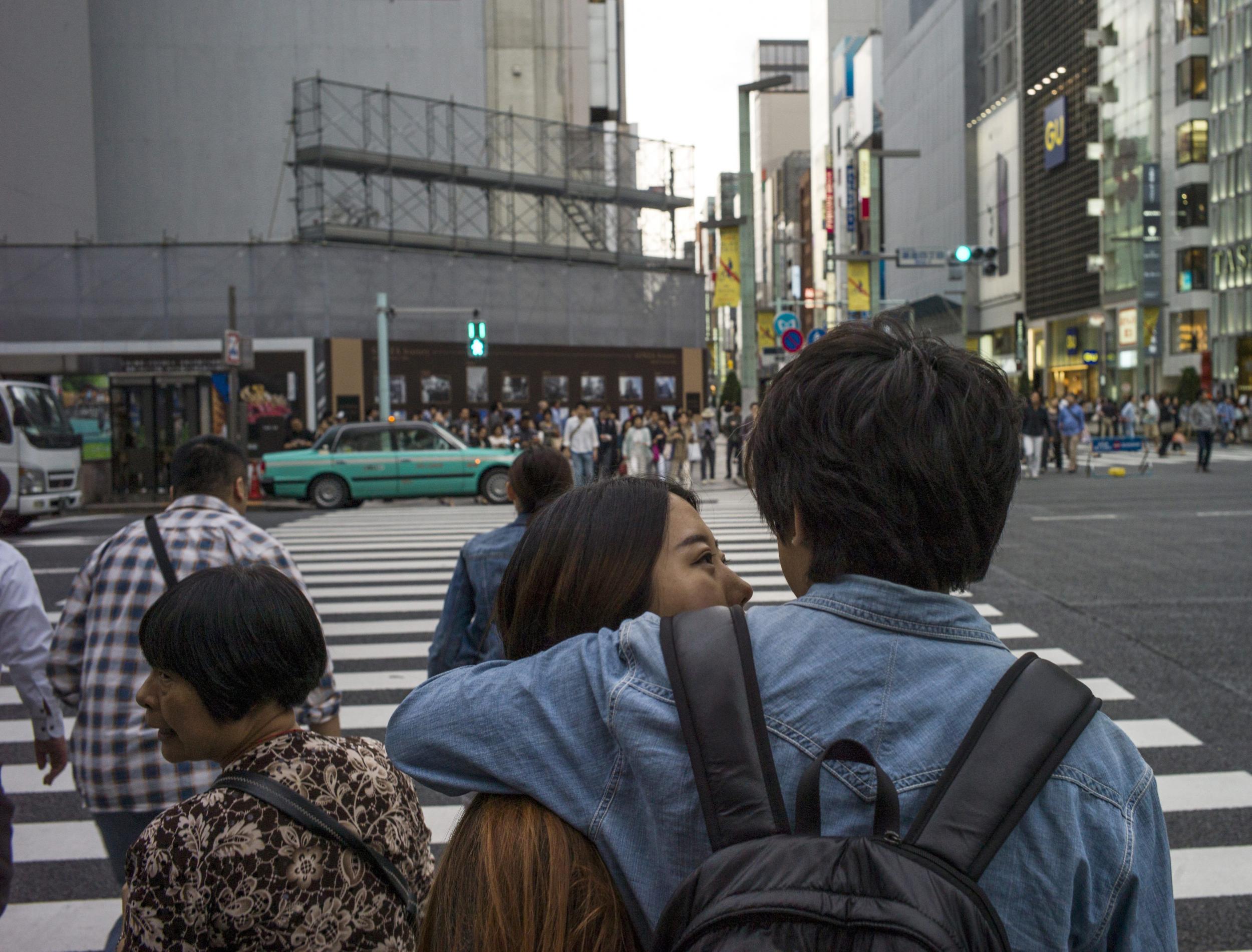Half of Japanese couples in 'sexless marriages'
More than 22 per cent of women said they found sex 'troublesome' while 35.2 per cent of men said that work left them 'too tired' for intercourse

Your support helps us to tell the story
From reproductive rights to climate change to Big Tech, The Independent is on the ground when the story is developing. Whether it's investigating the financials of Elon Musk's pro-Trump PAC or producing our latest documentary, 'The A Word', which shines a light on the American women fighting for reproductive rights, we know how important it is to parse out the facts from the messaging.
At such a critical moment in US history, we need reporters on the ground. Your donation allows us to keep sending journalists to speak to both sides of the story.
The Independent is trusted by Americans across the entire political spectrum. And unlike many other quality news outlets, we choose not to lock Americans out of our reporting and analysis with paywalls. We believe quality journalism should be available to everyone, paid for by those who can afford it.
Your support makes all the difference.Nearly half of marriages in Japan are now “sexless”, according to a new survey.
A record high of 47.2 per cent of married men and women told researchers from the Japan family planning association that they had not had sex for more than a month and did not expect that to change in the near future.
The findings are likely to add to existing concerns in the east Asian country about long working hours and a low national birth rate.
The association gathered responses from 655 married couples aged between 16 and 49 at the end of last year.
The number of sexless marriages, using the group's definition, was up 2.6 percentage points from a previous poll in 2014, and had risen significantly from the 31.9 per cent recorded when it conducted its first survey of the nation’s bedroom habits in 2004.
“The tendency of being in a sexless marriage has increased further,” Japanese media quoted the association’s president, Kunio Kitamura, as saying.
Among respondents, more than 22 per cent of women said they found sex “troublesome”.
Meanwhile, 35.2 per cent of men said that work left them “too tired” for intercourse — a dramatic increase from 21.3 per cent in 2014.
Smaller numbers said they had come to see their wives solely as family members rather than as sexual partners, or that their sex lives had fizzled out after the birth of a child.
“This is the first time over 30 per cent of men answered that they were too tired from work to have sex,” Dr Kitamura said.
“Apart from improving working hours, there is also a need to review how people work.”
The implications of the study, however, are contentious.
After a study by the National Institute of Population and Social Security Research last year found a massive increase in the number of virgins in the country, some academics criticised the way the research was reported.
Of 5,000 single people surveyed, the government department found 42 per cent of men and 44 per cent of women had never had sex.
But Tomomi Yamaguchi, an associate professor of anthropology at Montana State University, questioned the claim that Japan was in the grip of a “pathological” loss of interest in sex in an interview with The Guardian last year, and pointed to similar trends in other countries, including Britain.
“While the British situation is largely blamed on unemployment, Japanese singletons are blamed for having a unique – sometimes framed as exotic or pathological – lack of interest in sex, marriage and procreation,” she said, hinting that the way sociological trends in Japan were portrayed in the West could be influenced by racism.
Instead of a unique societal quirk, experts suggest the levels of celibacy in Japan are likely to be caused by pressure to work long hours, leaving people exhausted and with little time for family or social lives.
Japan has a serious problem with excessive overtime, to the extent that there is a term specifically for death from overwork — usually by suicide or heart failure — 'karoshi'.
About 2,000 people every year die from karoshi suicides alone.
A lack of sex among married couples has been blamed for contributing to Japan’s low birth rate. Experts in the country have expressed concern over the prospect of long-term population decline and the potential economic fallout from a dwindling workforce.
Given current trends, Japan’s fertility rate — currently 1.4 children per woman — is unlikely to rise to the 2.1 level needed to ensure the stability of its population.
If things continue the way they are going, Japan’s population of 127 million is expected to drop to around 86 million by 2060.
Join our commenting forum
Join thought-provoking conversations, follow other Independent readers and see their replies
Comments